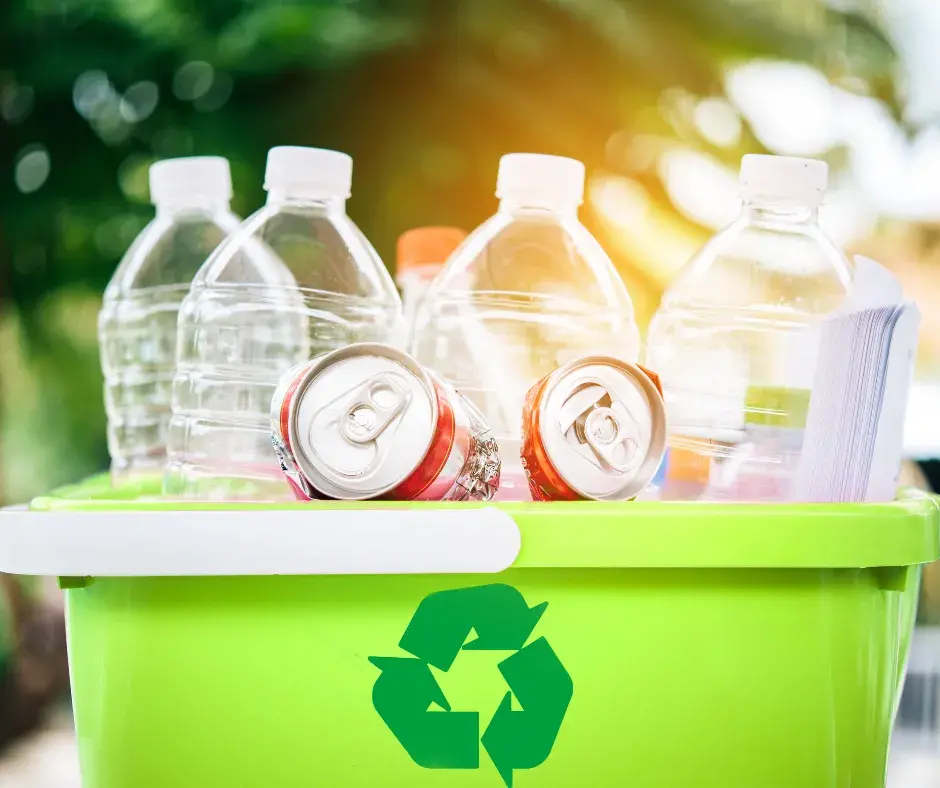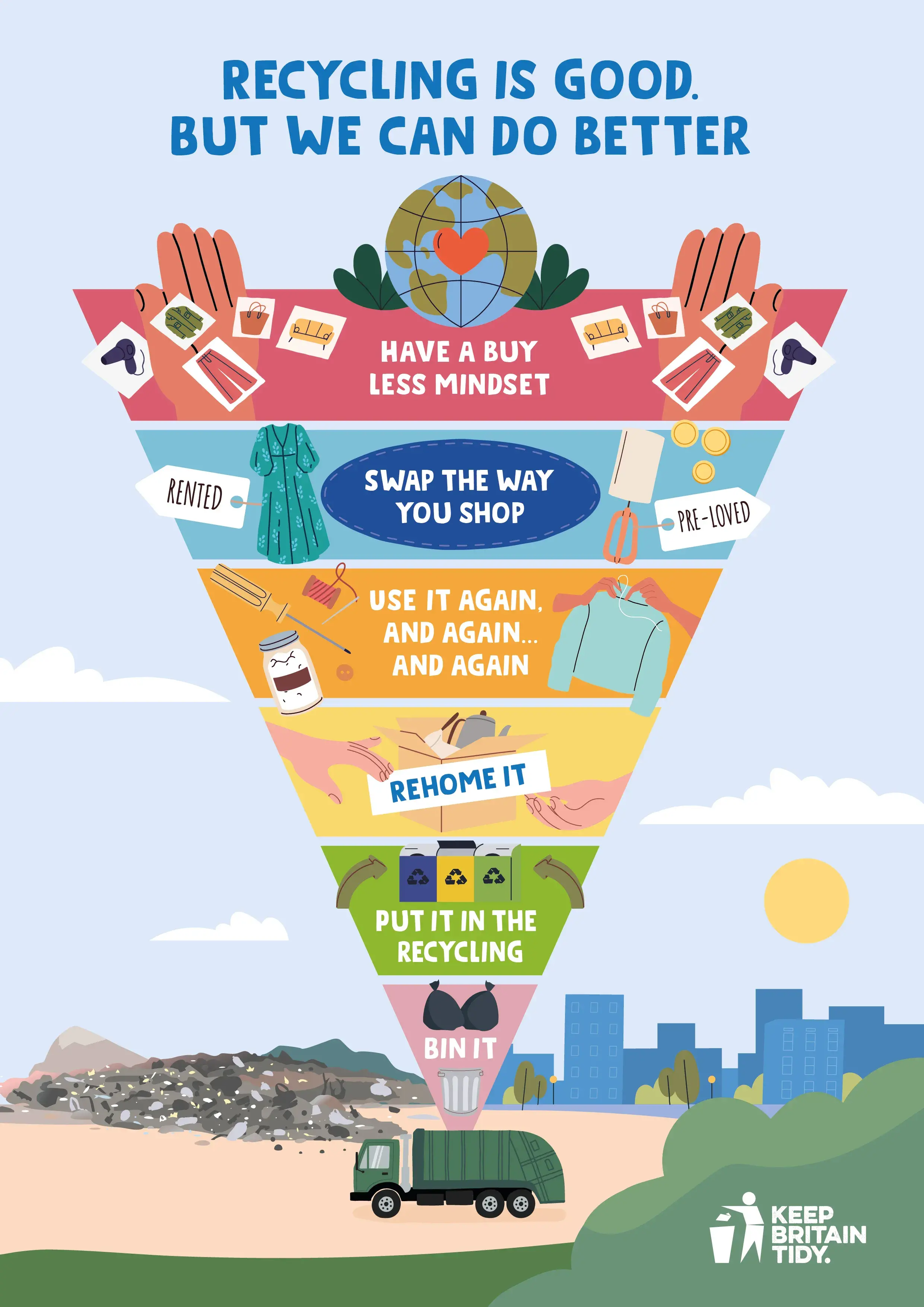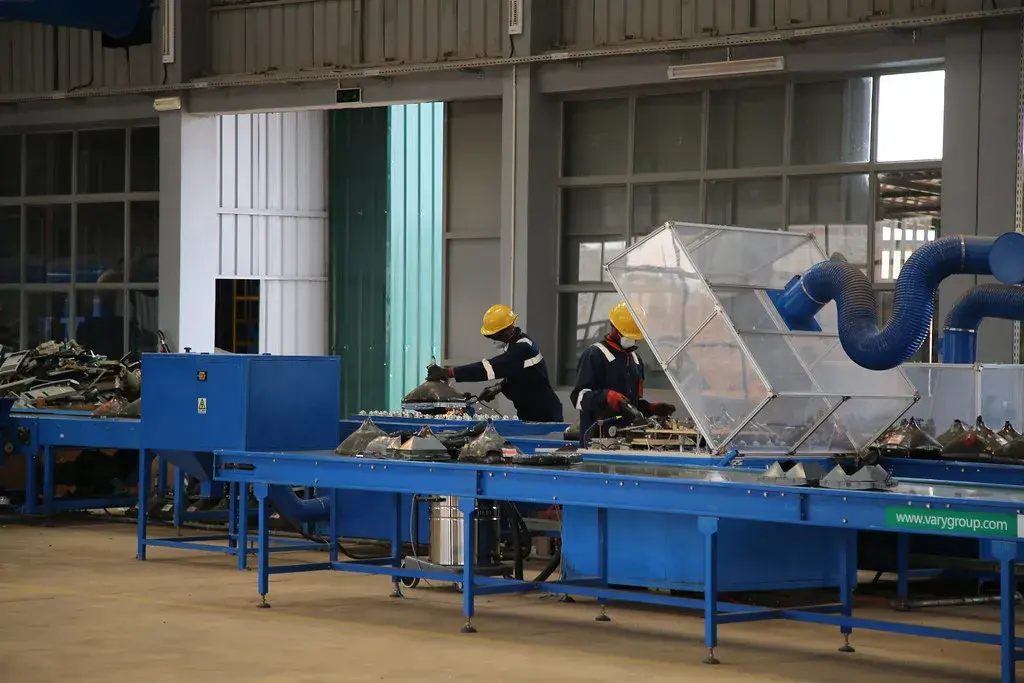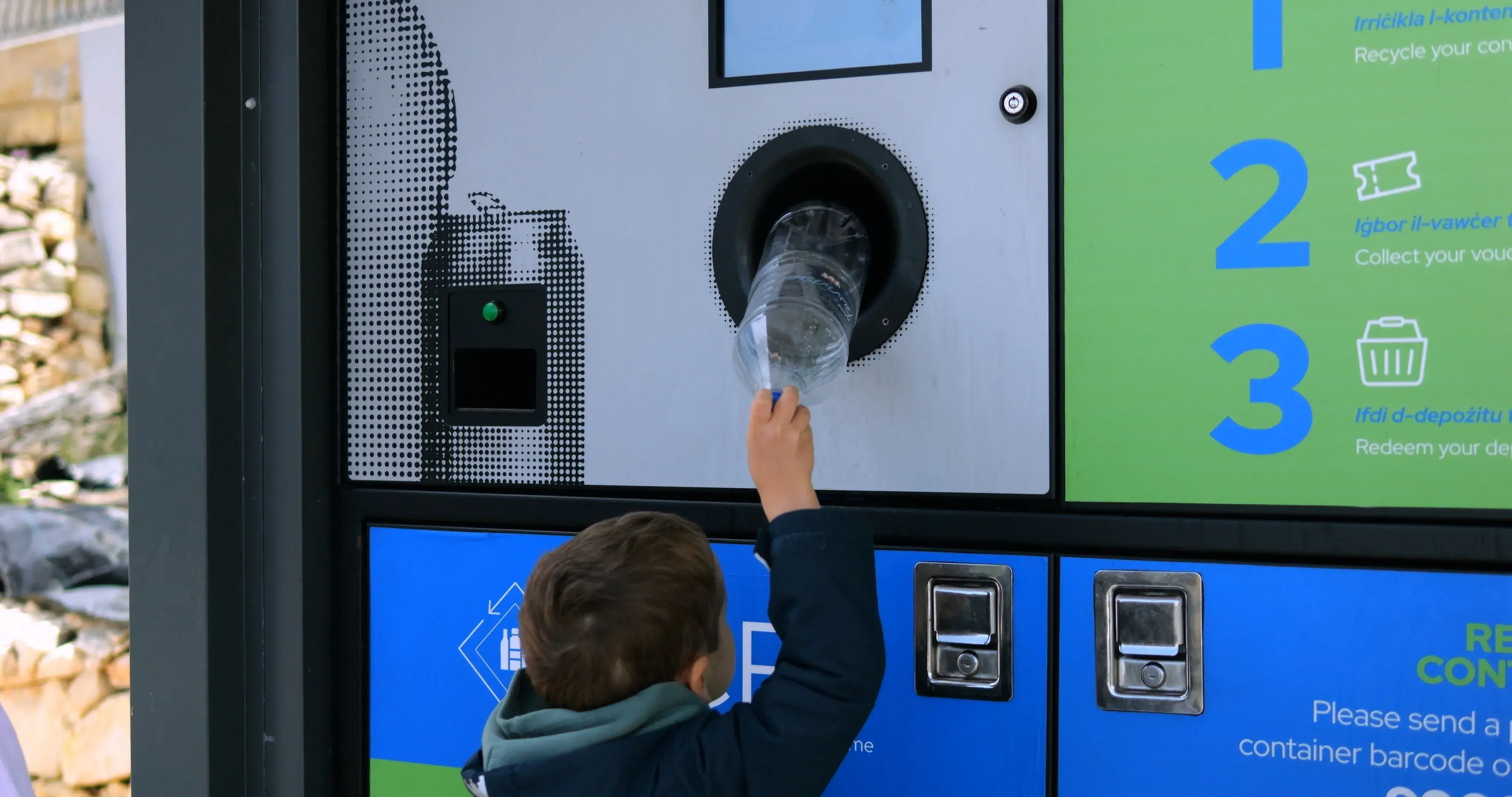Recycling is better than putting something in landfill or burning it, but it isn’t the best thing that we can do for the environment. Rather, we want the government and people to focus on waste prevention, making use of packaging reduction and reuse schemes to reduce the amount of waste we’re producing in the first place.
As part of our waste prevention work, we run award-winning campaign Buy Nothing New Month, which encourages people to save their pennies - and the planet - by making small changes to their buying habits, such as resisting purchases, buying preloved or finding innovative ways to reuse, repair or rehome things that might have been destined for the bin.
Moving to a circular economy
In 2023, following extensive research, Keep Britain Tidy launched newly designed and tested version of the waste hierarchy as part of fresh guidance to help local authorities and the waste industry better educate people about waste prevention and mindful consumption and accelerate the UK’s transition to a circular economy.
The report showed how using the new waste hierarchy, alongside effectively framed messages, can better engage people about waste prevention and called on the industry to 'speak with one voice' to make it easier for people to understand.
Research revealed that people still largely default to recycling and don't understand that this is only the third best option - behind reducing and reusing - in the countless other waste hierarchies currently in use.








